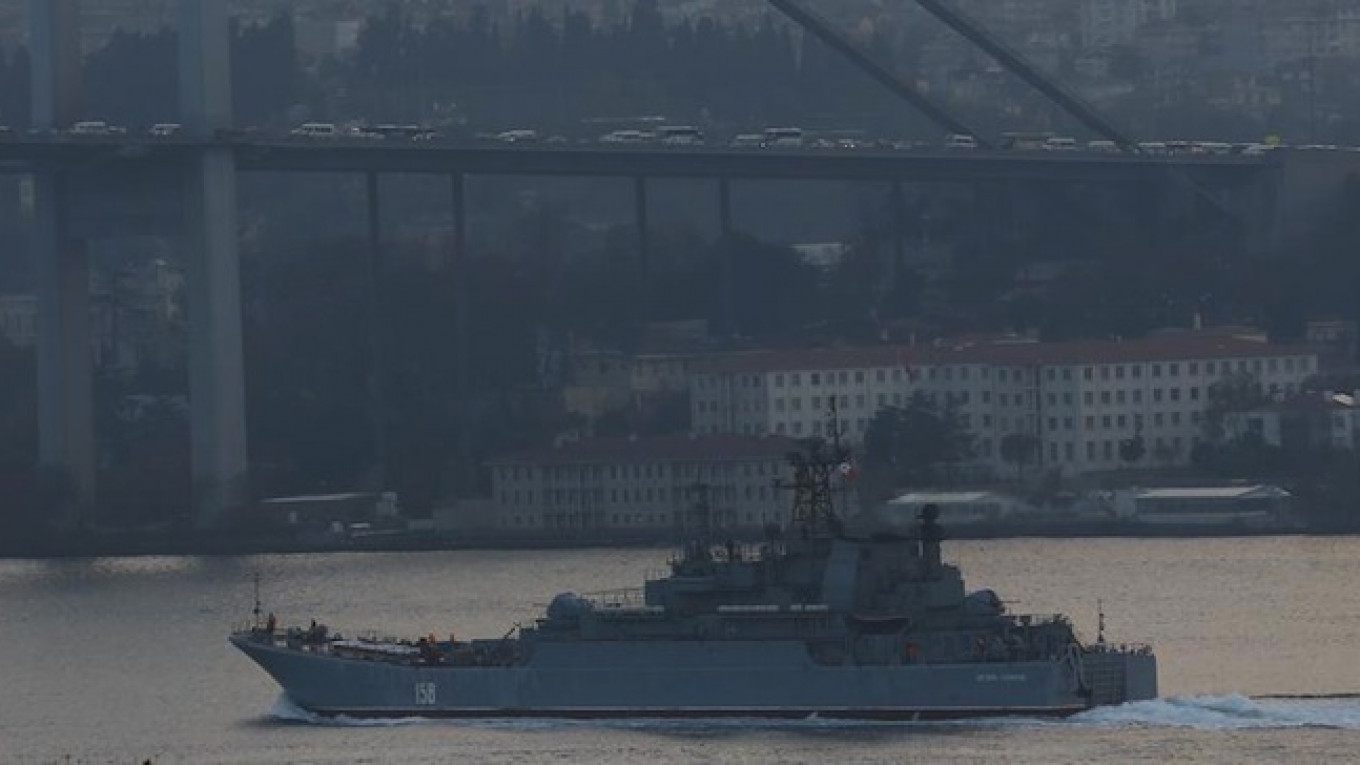Russia's Foreign Ministry on Tuesday brushed off Turkey's concerns about media images of a soldier brandishing a rocket launcher as he stands on the deck of a Russian warship passing through Turkish waters near Istanbul.
“The protection of the vessel is the legitimate right of any crew,” Foreign Ministry spokeswoman Maria Zakharova said in a statement on the ministry's website.
Turkish media began circulating the images Sunday, saying the pictures were taken when the Russian landing ship Caesar Kunikov passed through the Bosphorus Strait a day earlier.
The Turkish Foreign Ministry called the incident a “provocation” and summoned the Russian Ambassador to Turkey Andrei Karlov, for an explanation, Russian and Western media reports said.
Zakharova maintained that the ship's passage was in line with the Montreux Convention — a 1936 treaty that gives Turkey full control over the Bosphorus Strait, and regulates the passage of naval warships.
“For some reason, Ankara considers this [incident] 'provocative and threatening,'” Zakharova said.
“I would like to note that the photo of a sentry guard armed with a heavy machine gun standing on the deck of a Spanish military ship sailing in the strait provoked no outcry from Turkey or its media,” Zakharova said.
Turkey and Spain are defense allies as fellow NATO member countries. Russia has fetid relations with NATO and the West over Moscow's annexation of Crimea from Ukraine, support for separatist rebels in eastern Ukraine, and handling of the crisis in Syria.
Moscow's relations with Ankara have been deteriorating sharply since Turkey shot down a Russian bomber near the border with Syria on Nov. 24, accusing it of violating Turkish airspace. Russia denies the accusation, and President Vladimir Putin called the downing a “stab in the back by accomplices of terrorists” and warned of dire consequences for bilateral relations.
A Message from The Moscow Times:
Dear readers,
We are facing unprecedented challenges. Russia's Prosecutor General's Office has designated The Moscow Times as an "undesirable" organization, criminalizing our work and putting our staff at risk of prosecution. This follows our earlier unjust labeling as a "foreign agent."
These actions are direct attempts to silence independent journalism in Russia. The authorities claim our work "discredits the decisions of the Russian leadership." We see things differently: we strive to provide accurate, unbiased reporting on Russia.
We, the journalists of The Moscow Times, refuse to be silenced. But to continue our work, we need your help.
Your support, no matter how small, makes a world of difference. If you can, please support us monthly starting from just $2. It's quick to set up, and every contribution makes a significant impact.
By supporting The Moscow Times, you're defending open, independent journalism in the face of repression. Thank you for standing with us.
Remind me later.






